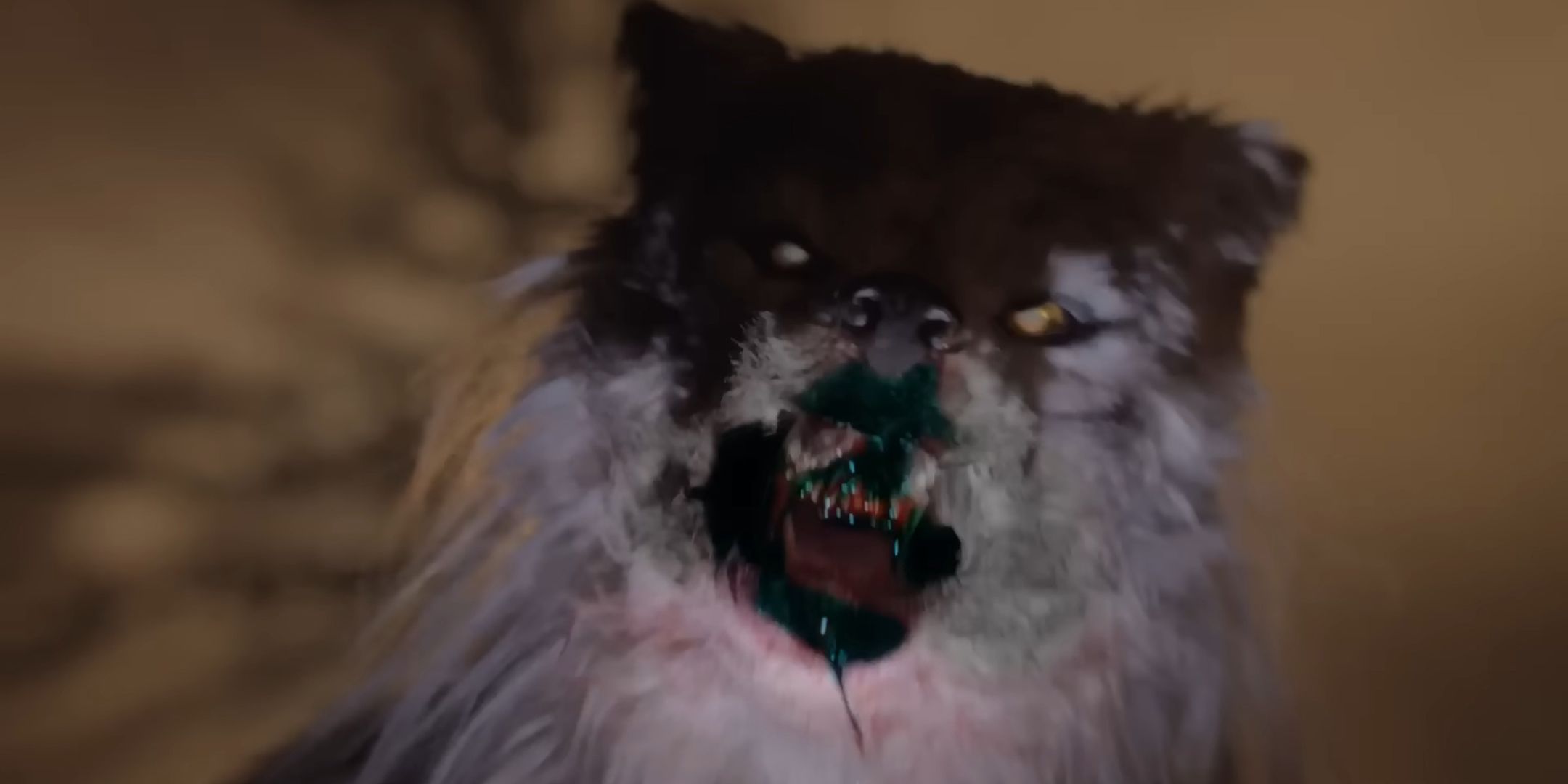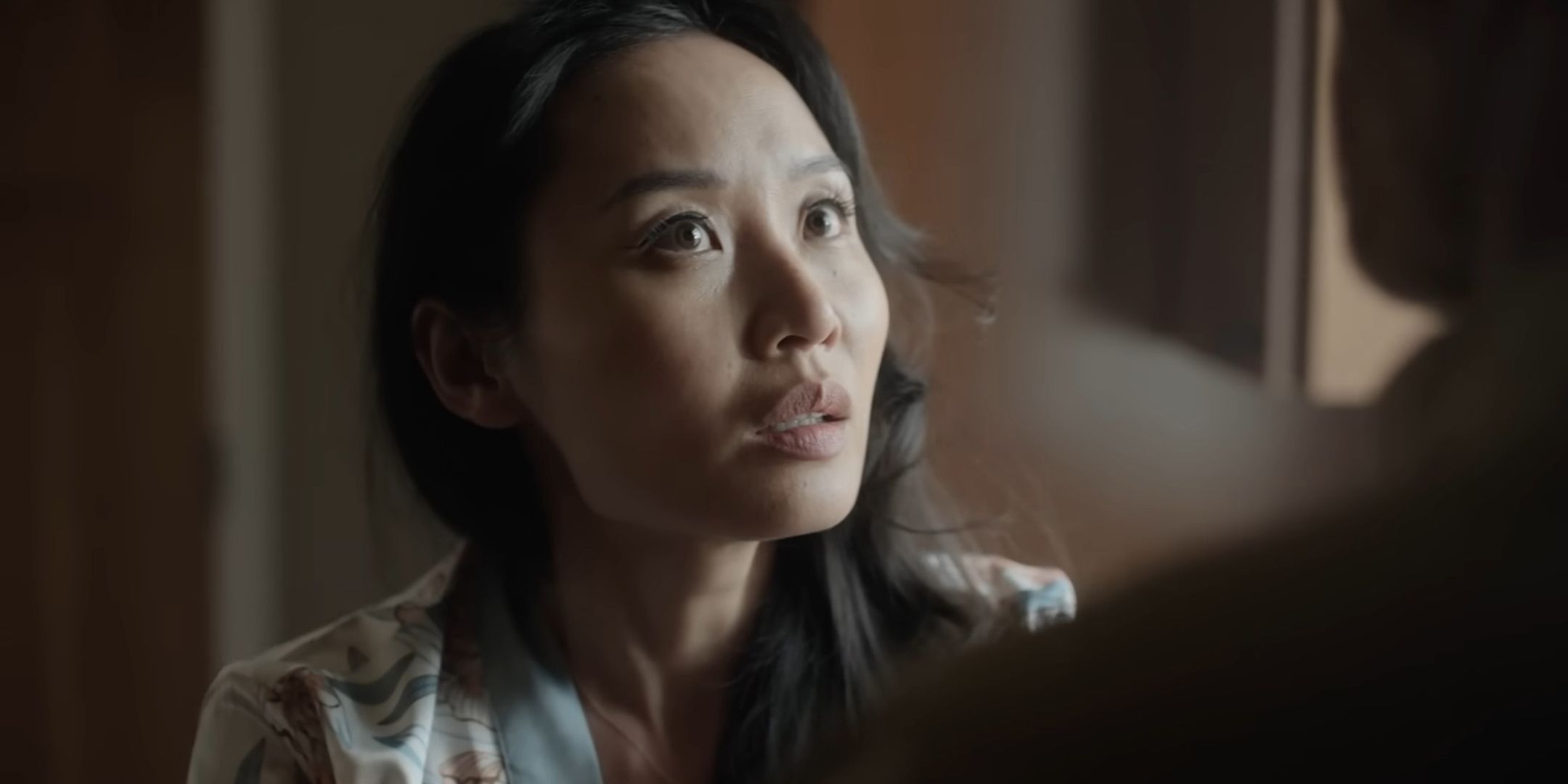This year has been a really weird year for horror for me so far. On the one hand, I’ve seen some thought-provoking and well-rendered films such as A24’s Bring Her Back or Ryan Coogler’s Sinners. These have instilled in me a renewed confidence in the genre. On the other hand, some of the smaller but thematically ambitious films (e.g. Control Freak or The Other) have left me feeling much more underwhelmed. Alma & the Wolf fell into the latter category.
It is hard to authentically summarize this film without spoiling its twist, but the hook, as we initially understand it, sees police officer Ren Accord (Ethan Embry) find a distraught young woman named Alma (Li Jun Li) at the side of the road, whose dog has just reportedly been killed by wolves and goats. As the story progresses, Ren becomes obsessed with tracking down this wolf, continuing this quest even when his estranged son goes missing in the process. Directed by Michael Patrick Jann, this film throws a lot at the audience, but very little lands.
Sloppy Editing & Bad VFX Make It Hard To Take This Movie Seriously
The Production Quality Is Low
Unfortunately, the film looks as cheaply made as it likely is, which is an instant turn-off. From one of the first scenes, when Ren and Alma are in the police station together, the lighting is so unconventional that it looks almost as if the camera’s white balance was off that day. This is combined with jarring editing that cuts to black frequently and choppily splices scenes together, lowering its overall quality.
After all, who could take this teeth-baring wolf mascot man seriously in a psychological horror film?
Alma & the Wolf also has supernatural horror elements that rely on VFX work. I could partially forgive the comically bad wolf costume, which was very clearly (but perhaps intentionally) a man in a mascot suit, but other moments were more egregious. In the film’s third act, a particularly tough scene unfolds at the police station, where a character is supposed to undergo a physical transformation. Both the practical and digital effects are poorly rendered here, making the scene — and much of the film — hard to take seriously as a horror.
Li Jun Li Is The Best Part Of This Movie
She Shines Even With A Weak Script
Though she is vastly underutilized in the movie, I was instantly sucked in by Li’s performance as Alma. Horror fans will recognize her as Grace from Sinners, a difficult role which she also balanced beautifully. The actor has an unshakable charisma onscreen, even when she is not given that much to do. I really bought her as this lost person who was still full of desire and steadfast support for those that she loved. Li ate up every piece of dialogue given to her, and even if the film’s ending uproots one’s idea of this character, her performance deserves praise.
The Twist Gives The Movie A Depth It Doesn’t Earn
But I Respect Its Ambition
I mentioned the wolf costume already, which was truly a ridiculous aspect of the film. For the first two acts, I could hand-wave this by deeming Alma & the Wolf a great example of unintentional camp. After all, who could take this teeth-baring wolf mascot man seriously in a psychological horror film? Until later on, I figured that it had to be on some level satirical, and felt that a camp reading of the film would make its ambiguous lupine cult be hysterically funny.
At the same time that I could excuse the ridiculous wolf imagery, I found the editing’s manner of confusing dream and reality to be a lot more frustrating. The scenes were not edited in a way that made it easy to distinguish fact from fiction, and to a fault for the majority of the movie. I was so trained to believe that everything related to the wolf was in Ren’s head that when some things actually did appear to be true, they were hard to trust.
The twist later made me discover that this reality blurring was fully intentional, but the campy tones were not. I will applaud Alma & the Wolf for actually going for something ambitious with the final twist. Though it does not fully excuse how scattered the film was for the bulk of it, the plot twist made more sense of the film’s jumbled nature. It also provided more clarity on Ren’s character and what his true experience was, which the audience did not see a lot of before.
Nonetheless, I ultimately felt like Alma & the Wolf‘s ending awarded the movie a level of depth it had not earned. This unsubstantiated thematic power could partially be the fault of Embry, whose performance is surface-level and all over the place, making Ren’s journey hard to rally behind. The twist is so dark that any thought of the wolves being campy was completely undermined. So, while I do appreciate it when a film shoots for the moon and tries something different, Alma and the Wolf missed.







